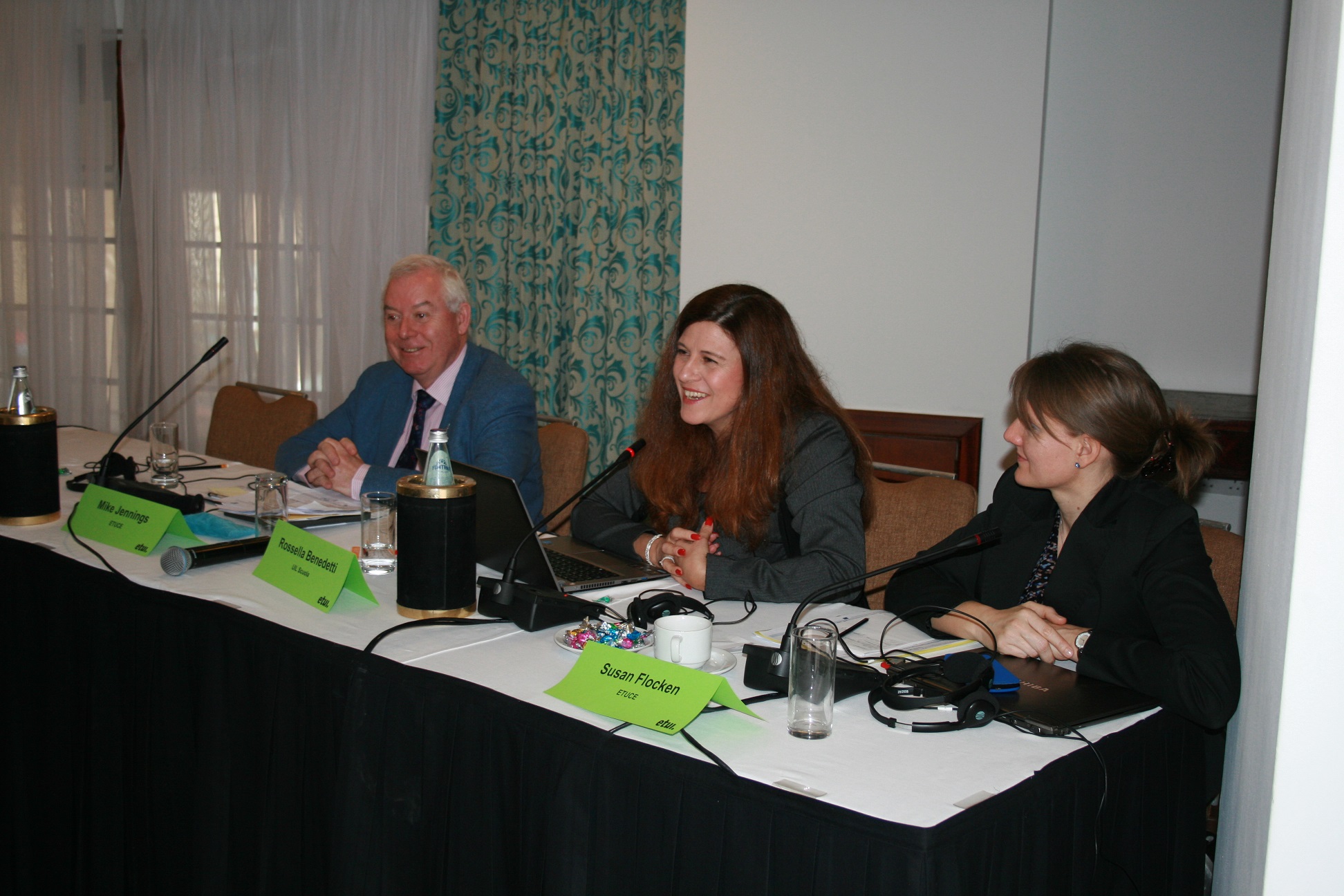Gender Equality in the Teaching Profession through Social Dialogue
Published:
From 9 to 11 March 2016, 25 delegates from teacher unions from all over Europe met under the umbrella of ETUCE and ETUI (the European Trade Union Institute) for a joint training seminar in Malta to learn about how to promote gender equality through social dialogue in the teaching profession.
Giving participants the opportunity to share their experiences and good practices the discussion evolved on the steps that need to be taken at different decision-making levels to achieve gender equality in the teaching profession. The representatives of ETUCE member organisations critically reflected on women’s working conditions, gender and status in the teaching profession as well as women and decision-making in teacher unions.
During a series of presentations, participants learned more about how to promote gender equality in the teaching profession through social dialogue and collective bargaining instruments. Guest speakers at this training seminar were Cinzia Sechi, Policy Officer European Trade Union Confederation (ETUC), who gave an overview of the work of ETUC on gender equality and presented the ETUC Toolkit for gender equality in practice and Renee Laiviera, Commissioner of the National Commission for the Promotion of Equality for Men and Women, who explained the perspective of the Maltese Commission on promoting gender equality in education. The meeting was spearheaded by the ETUCE Bureau member Mike Jennings, who called upon teacher unions to continue and strengthen their efforts towards obtaining gender equality. Rossella Benedetti, Chair of the ETUCE Standing Committee for Equality gave an overview of equality policies and activities on gender equality in the teaching profession at international and European level and pointed to the challenges for teacher unions;
Engaging participants in bargaining activities, Rita Catania (MUT, Malta), Yanka Takeva (SEB, Bulgaria) and Joaquim Santos (FNE, Protugal) gave interesting first-hand insights into their teacher unions’ equality structures, policies and activities.
In working groups, the seminar participants actively engaged in exchanging ideas and experiences on how to enhance teachers’ competences, cooperating with national actors to improve social dialogue, implementing practices and developments at national and regional level and gender mainstreaming in collective bargaining.
The training seminar concluded with an evaluation of teacher union methods and materials on gender equality from different perspectives in an interactive panel debate, chaired by Gitta Franke-Zöllmer, Chair of the ETUCE Status of Women Committee. The panellists were: Marina Alugishvili (ESTFUG, Georgia) for early childhood education, Rossella Benedetti for vocational education and training, Mike Jennings for the perspective on higher education and research and prof. Suzanne Gatt (Maltese Faculty of Education) for the perspective of teacher training institutes.
The report of this training seminar is to be published on the ETUCE website in due course.
Pictures from the training